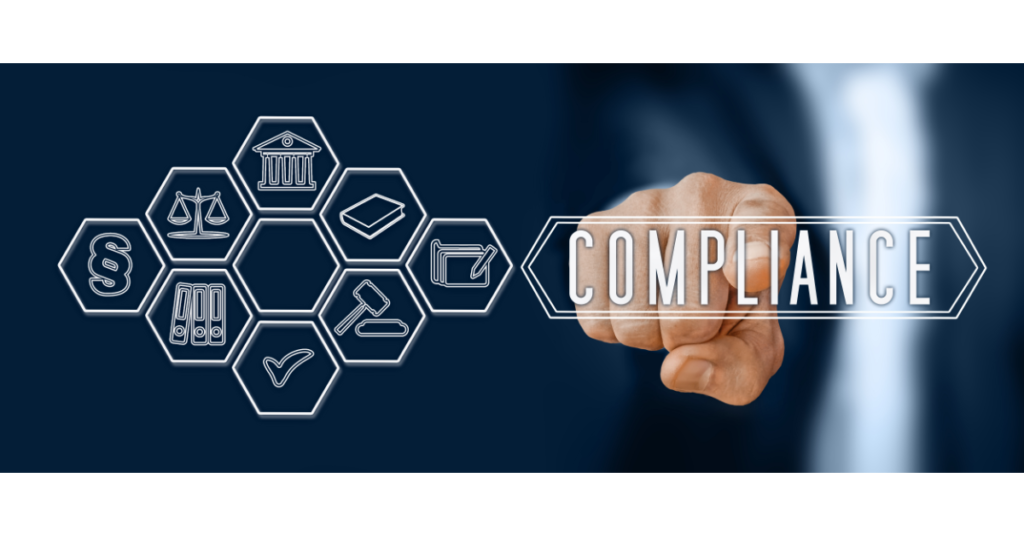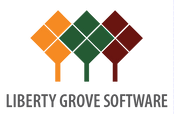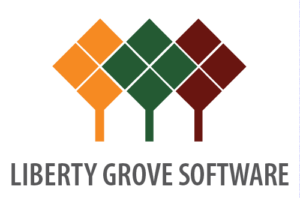Compliance Matters: 8 Ways ERP Can Help Food and Beverage Manufacturers
If you're a Food and Beverage manager, you don't need us to tell you that compliance regulations change while you sleep–and you must keep up with those regulatory evolutions every day.

There are numerous statutory rules and compliances that every Food and Beverage manufacturer must follow. Plus, these regulations and compliance standards are constantly changing in response to changes in customer needs and government legislation, making keeping track of them a time-consuming process that, more often than not, leads to errors.
Furthermore, due to the perishable nature of some items, ensuring food safety along its extensive supply chain, which encompasses various components, procedures, and departments, becomes increasingly difficult. Keeping an accurate record of data, from product sources to their expiry dates and content, is a task that companies can best manage with an ERP system.
According to the Centers for Disease Control, 48 million individuals in the United States become ill from a foodborne illness each year, with 128,000 hospitalized and 3,000 dying. In response, the Food Safety Modernization Act (FSMA) of the United States Food and Drug Administration (FDA) attempts to ensure food safety and compliance while reducing foodborne illness outbreaks.
Today, Food and Beverage companies must adopt a more proactive approach to food safety under the FDA Food Safety Modernization Act (FSMA). It departs from the more reactive strategy that Food and Beverage firms have traditionally used. With FSMA in place, businesses must identify risks, develop procedures for mitigating hazards, and implement those procedures to ensure the containment of threats to the safety of the food supply chain.
Why FSMA Compliance Matters
The initial FSMA rules were enacted in 2015, and more requirements will be introduced through 2024. These regulations require Food and Beverage manufacturers to be more proactive in preventing food safety issues. That includes implementing preventive measures and assessing and confirming them, all while documenting every step of the process. To meet legal obligations, Food and Beverage companies, which have historically been more reactive to events such as product recalls, must commit to a significant transformation in how they do business.
Track and trace tools have long been part of the Food and Beverage industry's recall readiness planning. A single recall can have far-reaching, negative consequences for a company. However, under FSMA, Food and Beverage firms must take a broader view of the safety and quality concerns that can influence their goods and business, and documentation is a critical component of FSMA.
FSMA also mandates more stringent record and documentation storage. That entails having the necessary document management tools and processes to assure traceability, dependability, and compliance along the whole supply chain—to avoid contamination and non-conformance.
FSMA compliance emphasizes the importance of consumer safety. Food and Beverage manufacturers, central kitchens, distribution centers, food importers, and even transportation companies can ensure complete documentation and food traceability throughout their supply chain—as well as high-quality products—by adhering to FSMA's quality management mandates and taking the proper steps today.
Food and Beverage companies must monitor various things to keep their operations functioning effectively. Among their many responsibilities is ensuring that they comply with the most recent compliance regulations. ERP systems can improve compliance in the Food and Beverage industry, and integrating this technology into the manufacturing process can be a game changer for manufacturers.
Why is compliance so critical in the Food and Beverage industry?

Regulatory Prerequisites
Government agencies and industry-specific groups impose several regulatory restrictions on the Food and Beverage business. Compliance regulations cover many topics, including food safety, labeling and packaging, ingredient supply, health and safety, environmental standards, and more. Compliance ensures that Food and Beverage companies follow these standards, reducing the risk of penalties, fines, legal ramifications, and reputational harm.
Consumer Health and Safety
Compliance with regulatory standards is critical to ensuring customer safety and health. Consumer protection from potential dangers such as contamination, allergens, toxic ingredients, or misleading labeling, Food and Beverage goods must meet stringent quality and safety guidelines. Compliance guarantees that the items are safe to consume and fulfill the quality requirements.
Consumer Trust and Brand Reputation
Compliance is critical in establishing and maintaining brand reputation and consumer confidence. Food and Beverage companies that constantly follow the rules show dedication to quality, safety, and ethical procedures. That contributes to the development of a positive brand image, increases consumer confidence, and increases loyalty. On the other hand, non-compliance occurrences can result in unfavorable publicity, a loss of consumer trust, and long-term damage to the brand's reputation.
Risk Reduction
Compliance assists Food and Beverage firms in mitigating various risks connected with non-compliance. By following rules, companies avoid the risk of product recalls, legal challenges, financial penalties, and supply chain interruptions. Compliance also aids in the early identification of possible hazards, enabling companies to take proactive measures to avoid compliance failures and the associated penalties.
Market Access and International Trade
International Food and Beverage companies must follow domestic legislation, international standards, and trade agreements. Compliance with international rules, such as those established by the World Trading Organization (WTO) and the Codex Alimentarius Commission, ensures access to global markets and smooth trading interactions with foreign partners. Failure to meet international standards can result in trade hurdles, export limitations, and missed market opportunities.
Ethical and Sustainable Practices
Compliance comprises more than just regulatory obligations; it includes sustainable and ethical behaviors. Food and Beverage companies are constantly under pressure to meet ethical and environmental requirements such as responsible sourcing, waste management, carbon footprint reduction, and fair labor practices. Compliance in these areas displays corporate responsibility, meets customer expectations, and is consistent with the expanding global emphasis on sustainability and ethical business practices.
Competitive Advantage
In the Food and Beverage sector, compliance can provide a competitive advantage. Companies prioritizing compliance stand out from non-compliant competitors, mainly where customers are increasingly worried about product safety, quality, and ethical activities. Compliance is a value proposition for customers, business partners, and investors who value responsible and compliant corporate operations.
In the Food and Beverage sector, compliance is critical to meeting regulatory requirements, ensuring customer safety and health, protecting brand reputation, mitigating risks, facilitating international trade, upholding sustainable and ethical practices, and gaining a competitive edge. Food and Beverage firms may protect their operations, maintain customer trust, and survive in a highly regulated and competitive environment by prioritizing compliance.
8 Ways ERP Improves Compliance for Food and Beverage Companies

ERP solutions are essential in improving compliance for Food and Beverage companies by offering a comprehensive and integrated framework for managing and monitoring numerous regulatory obligations, industry standards, and internal rules. Here are 8 ways ERP improves compliance for Food and Food and Beverage companies:
- Data Management Simplified
ERP systems consolidate and standardize data across functions and departments, ensuring accurate and consistent data. That reduces errors, redundancies, and inconsistencies in compliance-related data management operations, which could lead to compliance violations.
- Tracking Regulatory Compliance
Food and Beverage companies can use ERP platforms to track and manage compliance with various regulatory obligations, including food safety rules, labeling standards, quality control, and environmental restrictions. Food and Beverage managers can set up an ERP system to monitor crucial compliance parameters, produce non-compliance warnings, and generate regulatory-required reports.
- Inventory and Batch Tracking
To achieve compliance criteria, Food and Beverage firms must ensure the traceability of components, batches, and final products across the supply chain. ERP systems enable organizations to track and document the movement of raw materials, ingredients, and completed items, guaranteeing compliance with safety and quality laws.
- Quality Control and Assurance

ERP systems provide quality management features that help companies comply with demanding quality control requirements like Good Manufacturing Practices (GMP), Hazard Analysis, and Critical Control Points (HACCP). These modules enable Food and Beverage firms to develop and implement standardized quality control systems, conduct inspections, manage non-conformances, and track remedial and preventive actions.
- Audit Trail and Documentation
Compliance frequently necessitates the preservation of substantial paperwork and audit trails. ERP solutions enable Food and Beverage firms to develop, store, and manage compliance-related documentation like standard operating procedures, compliance certifications, test reports, and regulatory filings. This guarantees that needed documents are easily accessible during audits and regulatory inspections.
- Financial and Tax Compliance
ERP systems provide financial modules that assist Food and Beverage companies in complying with tax legislation, financial reporting requirements, and industry-specific accounting procedures. These modules automate financial practices, provide accurate financial statements, and aid in tax compliance, reducing the risk of non-compliance and the accompanying fines.
- Management of Vendors and Suppliers
Companies that sell Food and Beverages must verify that their suppliers and vendors follow numerous legislation and quality standards. Companies can use ERP systems to handle supplier information, track compliance certifications, conduct supplier audits, and maintain a dependable vendor qualification process, reducing compliance risks connected with external partners.
- Employee Education and Compliance
ERP systems can help with staff training and certification programs to ensure compliance with safety rules, workplace regulations, and industry-specific requirements. These systems can track staff certifications, plan training sessions, and provide online learning materials, establishing an organizational compliance culture.
Overall, ERP improves compliance for Food and Beverage companies by providing a comprehensive framework for managing and monitoring regulatory requirements, ensuring data accuracy, enabling traceability, facilitating quality control, automating financial processes, managing documentation, and promoting an organizational culture of compliance. By adopting a modern ERP, Food and Beverage firms can successfully meet compliance duties, mitigate risks, and retain their reputation in the highly regulated Food and Beverage market.
Is it Time to Consider Using an ERP Solution to Improve Compliance in Your Food and Beverage Business?
Powered by Microsoft Dynamics 365, DynamicsFoodERP from Liberty Grove includes real-time reporting and analytics capabilities, enabling Food and Beverage companies to monitor and analyze compliance-related data. The system can provide customizable compliance reports, performance dashboards, and key performance indicators (KPIs), providing decision-makers with actionable knowledge to handle compliance issues proactively.
Liberty Grove can help you use many tools and services to help you achieve a successful Food and Beverage ERP implementation that will improve productivity, efficiency, and profitability throughout your organization.
Contact Liberty Grove for a complimentary consultation on how DynamicsFoodERP can increase your shop floor productivity and give you the data insights you need to improve decision-making and compete at a higher level.
Related reading:
7 Advantages of a Food and Beverage Cloud ERP Deployment
7 Ways Food and Beverage ERP Can Help Track Food Quality
About the author
Liberty Grove Software is an established Microsoft Partner that focuses on providing customers with sales, service, and support for Microsoft Dynamics 365 Business Central/NAV solutions and training and upgrades.
Over more than 25 years, Liberty Grove has assisted hundreds of customers with businesses ranging from small to mid-sized to Microsoft Partners in implementing, training, customization, and upgrading Microsoft Dynamics ERP solutions.
The organization is one of only a few companies worldwide that Microsoft recognizes as qualified to provide Business Central/NAV Upgrade Service Centers.

